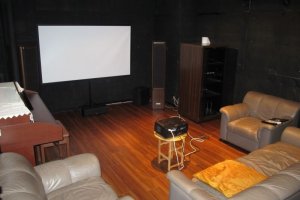Share houses in Japan can offer convenience, affordability and flexibility to those looking to stay in Japan longer than the average holiday. With more and more people arriving in Japan looking to pursue their dreams, the share house market has steadily expanded in recent years.
Those coming to Japan to find a job, study abroad, or even just live here for an extended period would be wise to know more about what's on offer. It's also easier than ever before to stay in Japan for longer periods. Visitors from many countries eligible for an automatic 90 day visa on arrival – with nationals from several countries even able to double this to 180 days during their stay.
What is a share house?
Share houses provide a combination of private rooms for residents, with shared communal facilities. With lower monthly and initial costs than rental apartment accommodation, they can be attractive to live in. Shared areas vary but can include kitchens, shower rooms and bathrooms, as well as social spaces like lounges.
Why consider living in a share house?
One major problem anyone faces when they travel overseas for a longer period of time is covering costs, with accommodation the main factor:
- Hotels are great but too expensive in the long term.
- Capsule hotels can be fun the first time, but staying too long likely unwise.
- Internet cafes are a well-documented alternative backup for overnight stays, but may damage your health.
- Dorms provided by some companies/schools may be restrictive or poorly located.
- Homestays may put you up with a family you might not get along with.
- Renting an apartment can involve a high setup cost, contracting your own utilities, paperwork, a high Japanese requirement as well as some patience (specifically with regard to the ease of acceptance of foreign tenants by some landlords – every experience differs though). Either you also factor in furniture, or you focus on serviced apartments – which come at an even higher cost.
Against this climate, you may think of share houses as an ideal solution for getting on the accommodation ladder in Japan – convenient, affordable, and friendly.
Why are share houses appealing?
Share houses can appeal to a wide variety of people, but are generally popular with both students and working adults in their 20s/30s.
Depending on the company you find, there are usually a good choice of locations and most don't require you to enter into a long contract.
Because of their burgeoning appeal to foreign residents, many share houses are very easy to communicate with in English making booking hassle-free.
They can also be ideal for those who like the social aspect of having lots of neighbours straight from the beginning – after all, arriving in a foreign country is never easy on your social life as things get started.
How to decide if a share house is for you?
Pros of living in a share house
In addition to offering different types of housing, what sets sharehouses far apart from other types of accommodation is its combination of high quality facilities and low prices.
- Facilities Rooms are often fully furnished, while some locations include additional communal areas like theater rooms, multi-purpose studios, and other special features. Appliances such as mini fridge and washing machines are often included. Some providers, like Oakhouse, even offer a car transfer between locations.
- Free Internet Available in all lounges and each private room is equipped with LAN connections.
- Affordable Rent Amazingly, despite all those benefits and privileges, almost all share house rental rates fall between the 35,000 to 80,000 yen per month range.
- Utilities included Everything works on the day you arrive – not necessarily the case when renting an apartment.
- Fewer Additional Fees One major letdown many people face when signing a new housing agreement is the numerous fees laid on top. The surprise of finding a good deal can be offset by the slow horror of learning the total fee list expected upfront. Think agency fees, key money, gift money, security deposits, rent deposits and the like (though negotiation may be possible to some extent). Share houses will have their own fee structure, but it is likely highly simplified with less stealth charges to worry about – of course, always confirm what you are expected to pay before you sign anything.
- No Guarantor Required Typically with entering long-term contracts or large purchases, you'll need to supply details of a guarantor. This is usually a family member or willing company, which is neither easy or possible in many cases.
- Meet People If you're new to Japan, it can be a good way to build up a social network quickly.
- Female only-properties Some share house locations are provided exclusively for female residents, for added security and peace of mind.
Cons of living in a share house
- Less Privacy You'll need to be prepared to adapt to shared living – sharing amenities like shower rooms, bathroom facilities and cooking spaces might lead to frustration at times, as well as the volume/noise of being around so many people.
- Space Space is a premium in Japan, and share houses drive down costs by keeping rooms compact.
- Neighbours Although it sounds great to suddenly meet so many people and make potential lifelong friends on your desktop (hence also listed as a pro), there is no guarantee you'll get along with them. Some share houses may have very few communal areas to socialise too.
- Minimum tenancy One thing of note is that some share houses, apartments, and social residences all require a minimum staying duration of one month.
How to choose a share house?
When looking around you'll want to consider several factors:
- Location Location and access to stations/train lines will have a huge bearing on share house rental price.
- Figure out how far away you are prepared to live from your place of work or study to find a potentially suitable location
- Know that although newer properties may seem more attractive, rents may be lower purely because the best locations are already occupied.
- Think about access to supermarkets and convenience stores.
- Contract Make sure everything is agreed and stated in a contract. Make sure you know what type of contract you are signing (e.g. fixed term vs regular rental), what fees are expected, and the rules of living and using facilities.
- Management It's not necessarily straightforward to identify a reliable management company, but the usual signs apply – how responsive are they, how reliable are they, how well do they know the properties and how often do they visit them?
- Rules Make sure you are aware of the living rules at each share house. With the growth in the market, many share houses have emerged catering to e.g. women-only locations, pet-friendly properties and so on. Rules with regard to friends or family visiting may be important.
- Viewing It helps to have the chance to view in person, so make an appointment before deciding. This should give you the chance to get a feel for the kind of people staying there, as well as the vibe of the local area.
Which companies provide share houses?
 | OakhouseOakhouse launched in 1992 and offers a variety of share houses, apartments to rent and self-styled social residences. More > |
 | Fresh RoomFresh Room provide share houses around Tokyo. |
Sakura HouseSakura House provide share houses around Tokyo. | |
 | Borderless HouseBorderless House provide share houses around Tokyo. |































